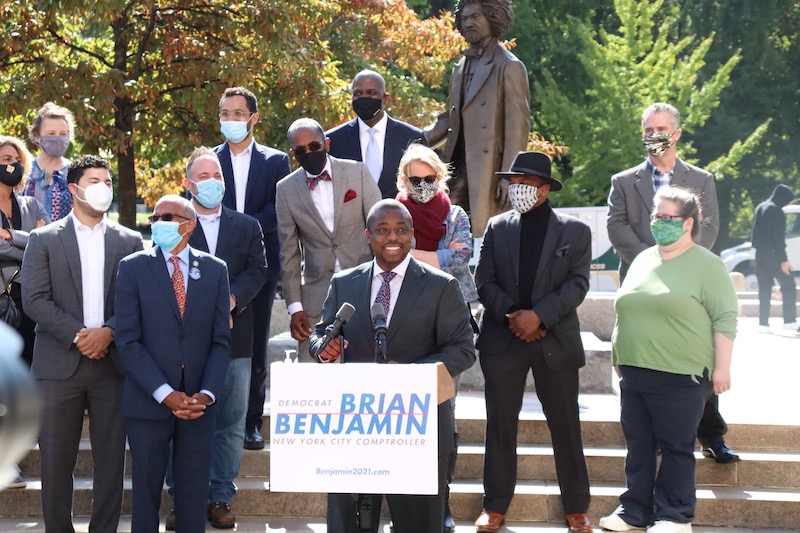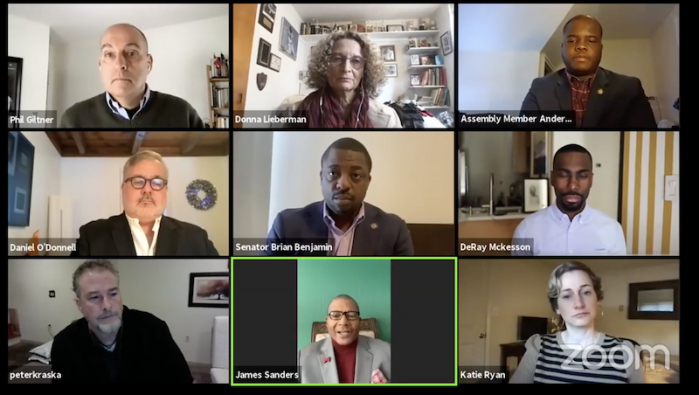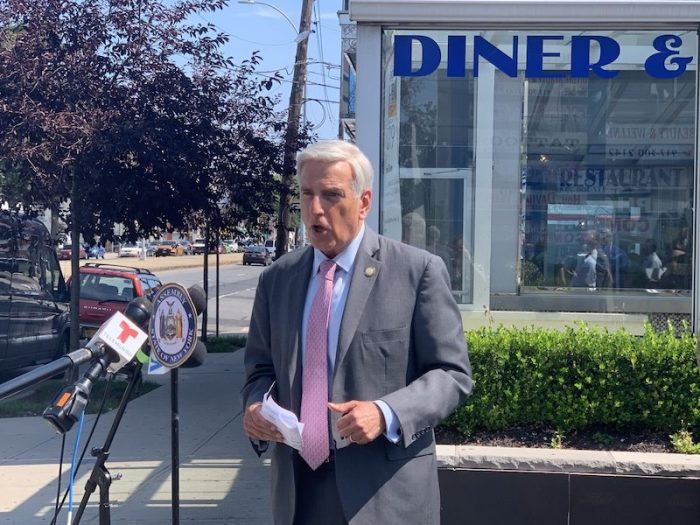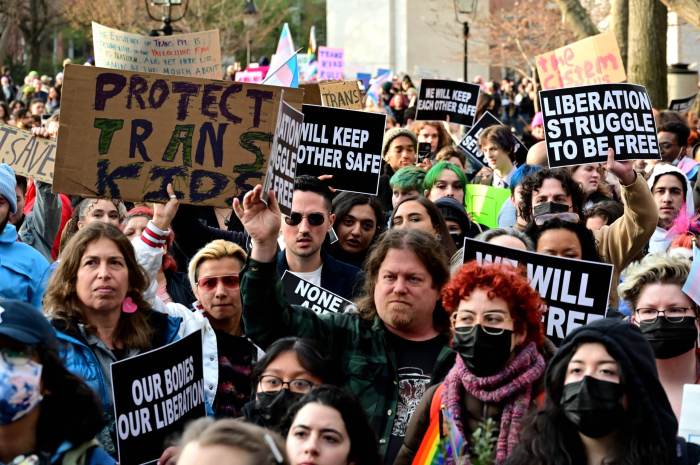State Sen. Brian Benjamin (D-Harlem) for District 30 in Manhattan is taking on two Brooklyn boys, among others, in the race for City Comptroller in 2021.
“I was born in Harlem Hospital. Both of my parents are retired on a pension. My mother was an immigrant from Guyana and she worked at Local 372. My dad was a janitor at Stuyvesant High School and he was a member of 32BJ. Both of them are retired on pensions,” said Benjamin about his upbringing.

Benjamin attended Brown University for Public Policy and has a Master’s in Business from Harvard. He started his career as an investment advisor at Morgan Stanley and was working at a minority-owned business to build affordable housing, before being elected to the Senate in 2017. Benjamin was inspired by his parents to prioritize safeguards for pensions in the city as comptroller.
The proposed retirement plan, called Early Retirement Incentive (ERI), would allow eligible members to retire now without a reduction and help move more people “off the city’s payroll.” KCP asked if that was a viable option in his pension reforms.
“I think that when you look at the pension obligations they are pretty large. I think that the city, and this would be more Mayor not necessarily the Comptroller, the Comptroller has to deal with the decisions they make, but I do believe that all things should be on the table,” said Benjamin.
According to the city’s Campaign Finance Board, Benjamin has raised the second-largest amount in contributions in the comptroller’s race slightly behind Brooklyn City Council Member Brad Lander.
Benjamin said, if elected, he hopes to work with a mayoral administration that understands elections are elections and governing is governing. He said too much constant campaigning is not in the best interest of the public. “We have a crisis. There’s a lot of hard decisions that have to be made,” said Benjamin.
As a budgeting example, Benjamin used the police and public safety budget, which has been hotly contested since George Floyd’s death in May and sparked “Defund the Police” protests nationwide.
“I want to know what’s in the police budget and what the police are doing. Are we asking the fundamental questions?” asked Benjamin, “You can call some of the councilmembers and say ‘Do you know what $6 billion dollars of the NYPD, where does that go?’ They don’t know. So how do you know what should be decreased from a budget if you don’t know what’s in the budget?”
He said that catchphrases, politics, and individual agencies aren’t comprehensive in driving solutions for the city’s needs for targeted police support and public safety. He said that people are good at defining the problem and advocating for ideas, but not the solution.
Benjamin has had experience with building and funding affordable housing. He said that a large portion of the affordable housing discussion is the homelessness crisis which is not being properly addressed.
“These are economically targeted investments that are good for the city,” said Benjamin, “Permanent supportive housing for the homeless has to be answered, we cannot keep shuffling around, and the comptroller has an important role in helping to invest in affordable homeownership, affordable housing, and homeless housing initiatives.”
He said he is also currently working on legislation with other senators and assembly members to end property tax lien sales that disproportionately affect Black and Brown communities.
“I am a big believer that we should end tax lien sales, and we should, without question, not consider tax lien sales in the middle of a COVID crisis. There are a number of small homeowners that A) might have lost jobs, might’ve lost revenue and/or B) have two-family homes where they have renters who can not afford to pay rent. I think it’s important that we are very conscious at this time to not add crisis onto crisis,” said Benjamin.
Using his background in finance, Benjamin said he’d advocate and fiercely support small businesses in this time of fiscal crisis, especially M/WBE’s (Minority and Women Business Owners.) “The city acknowledges that they don’t do as many contracts with small businesses, partly because it’s inefficient. Most people would say,” said Benjamin.
Benjamin said that inefficiency and lack of staffing to handle these contracts are why agencies tend to default to larger corporations, however, multi-billion dollar companies don’t suffer in the same way as local businesses without the city’s money. He also said the city is notorious for not paying small businesses on time which is critical to keep business owners afloat.
“Amazon does pretty well in the private sector,” said Benjamin. “Last I checked they don’t pay taxes and Jeff Bezos is worth billions and billions of dollars more even during COVID. To me, I don’t see a need to be worried if Amazon or Staples are getting contracts to provide pencils and pens to the Department of Education. What I do think is important are these businesses whose whole lifeblood it is to provide these kinds of contracts. That’s an impact issue. Amazon isn’t thinking about the pencil contract.”
Benjamin lastly spoke of his relationship with former Mayor David Dinkins before his recent passing.
“One of the things we talked a lot about is me being a newly elected official, I represent not only Black America, but Harlem and I need to think about how I present myself,” said Benjamin. “the lineage of my State Senate seat would give anybody pause.”
Benjamin said he is encouraged to see talented people of color and women in Brooklyn, the Bronx, and Queens holding political power, and thinks it’s important to support one another across boroughs and states when people are running for higher office.

















